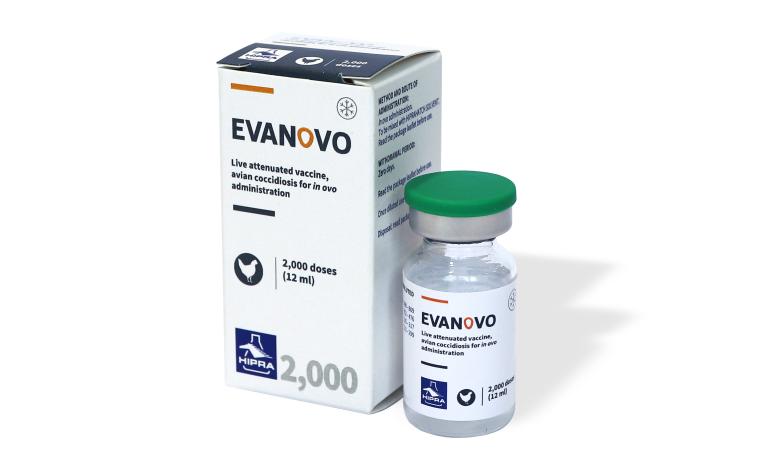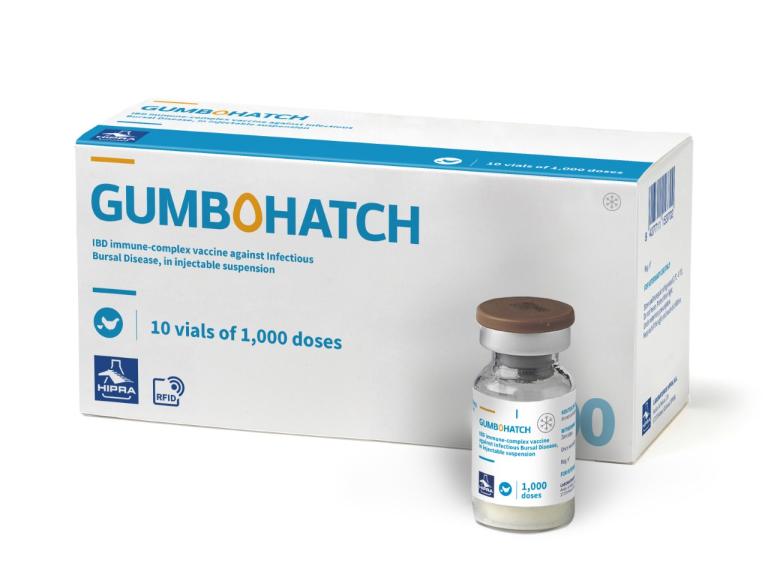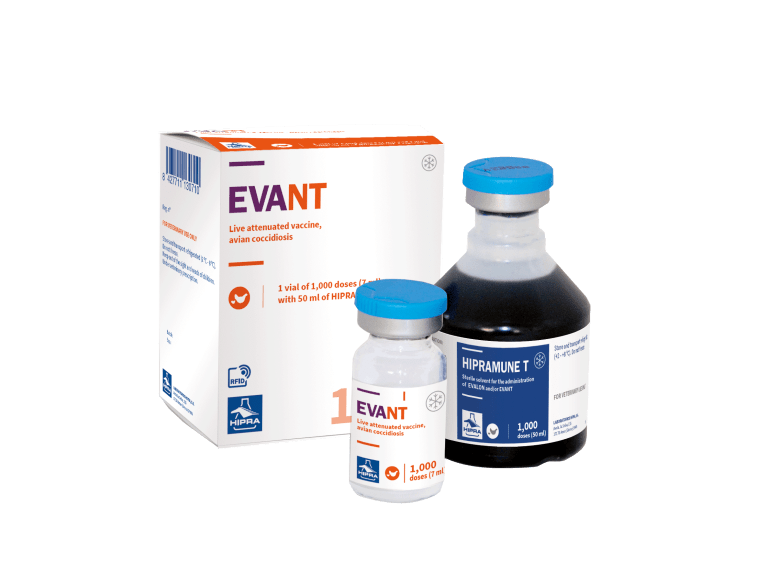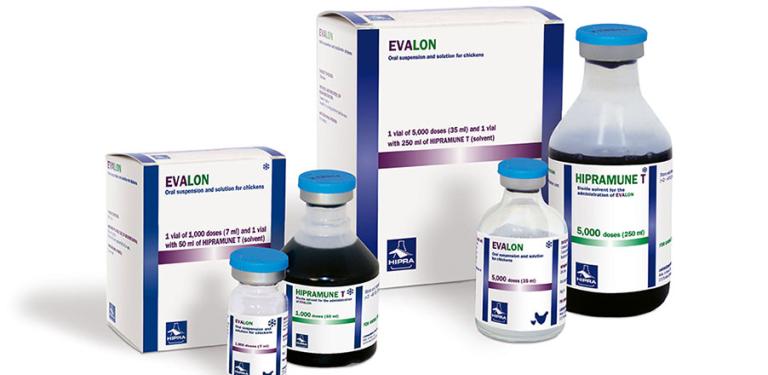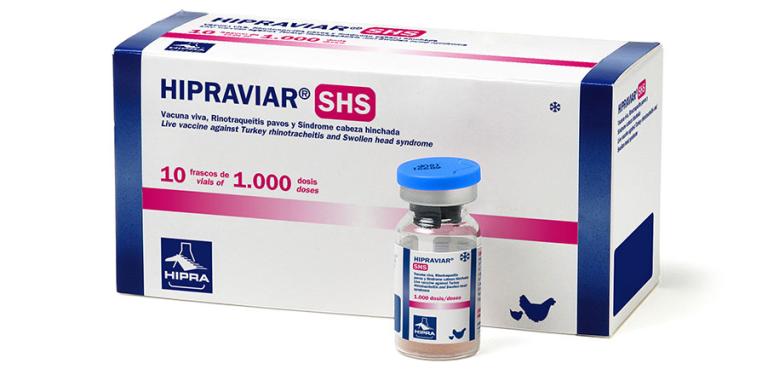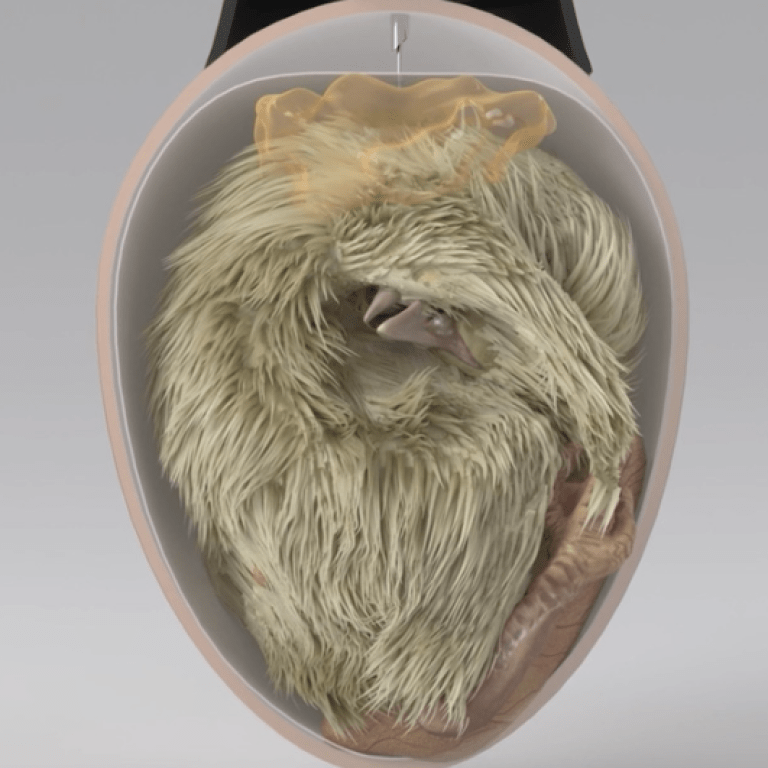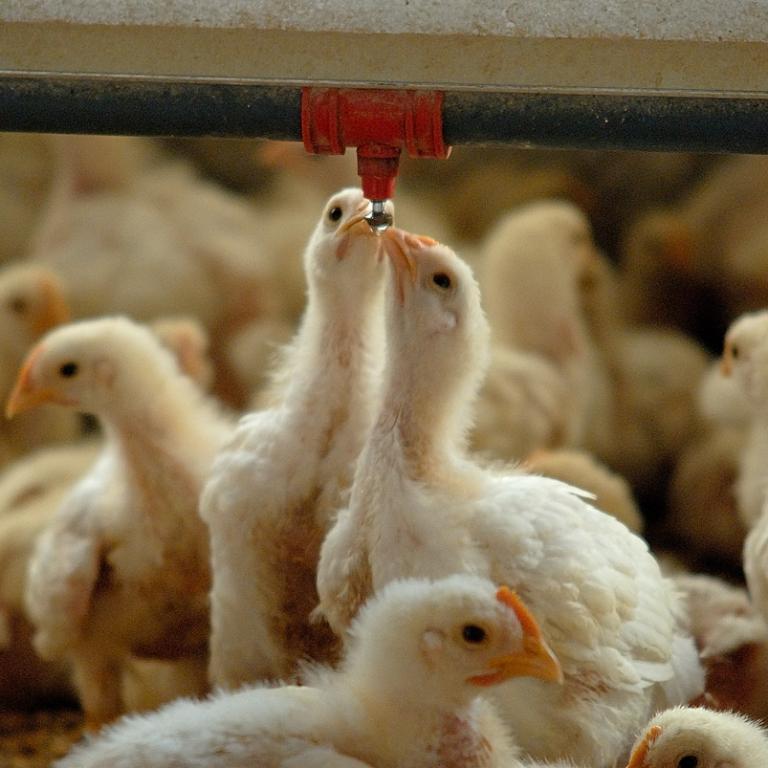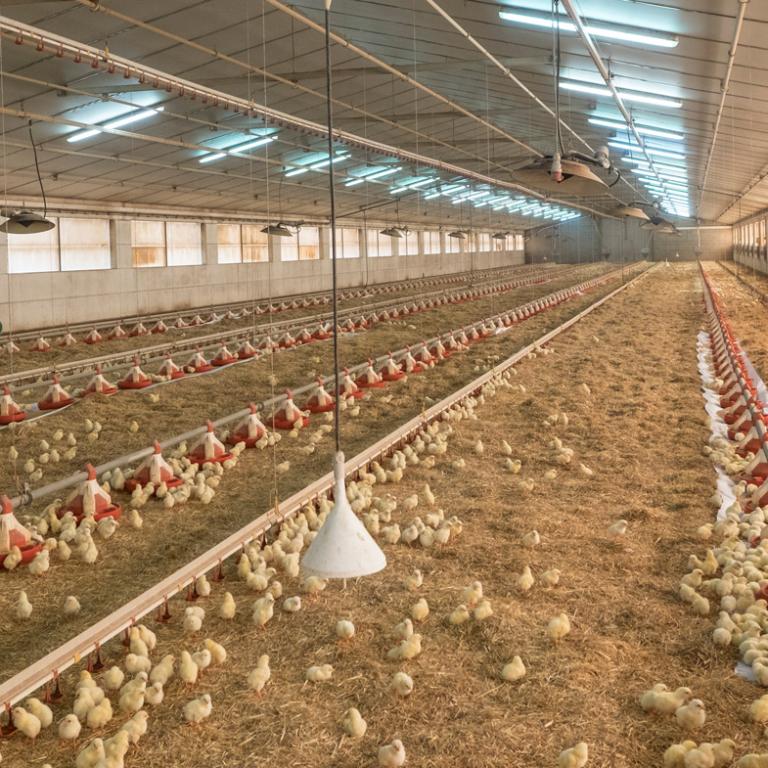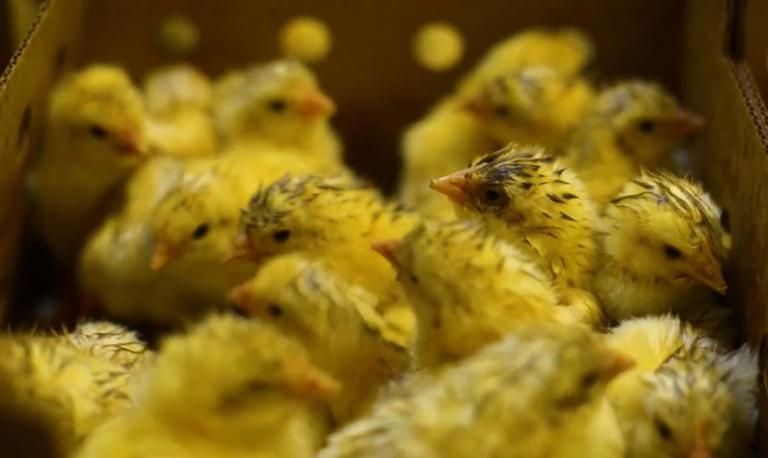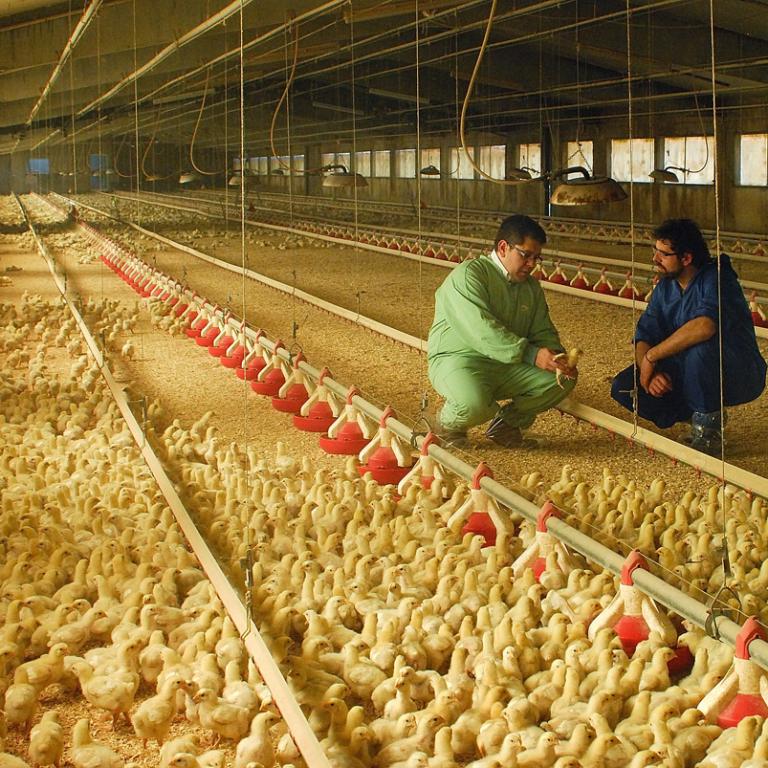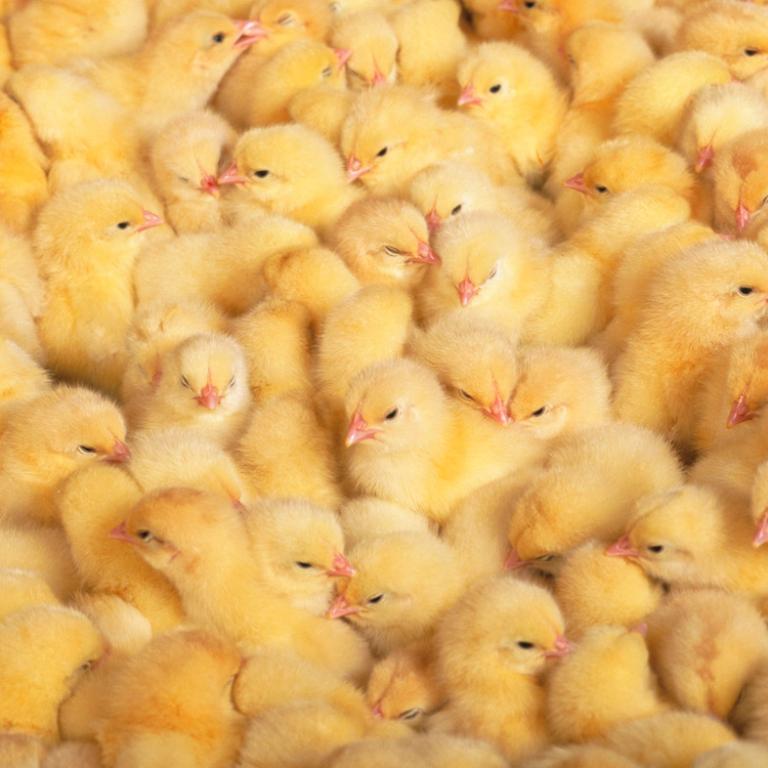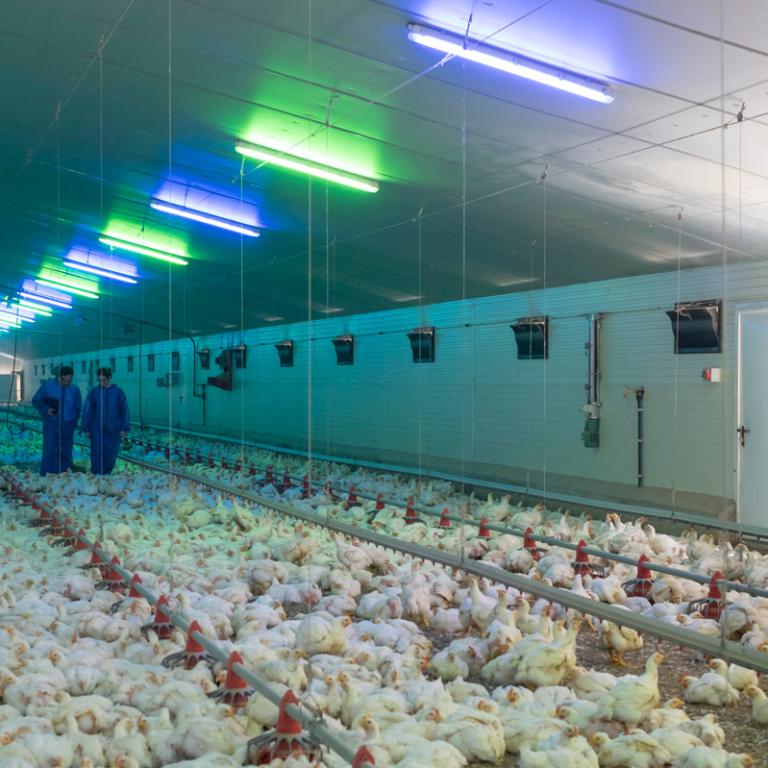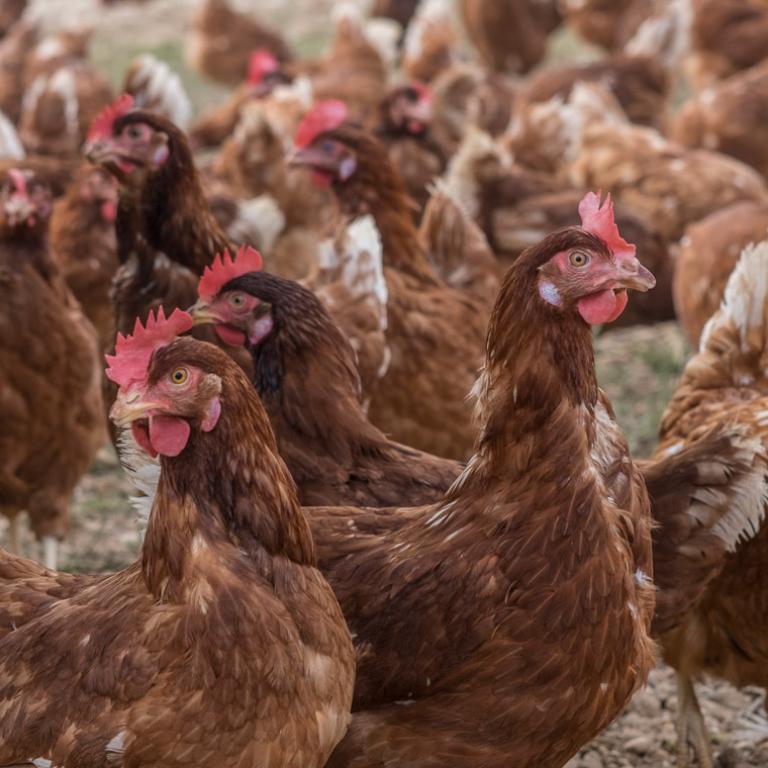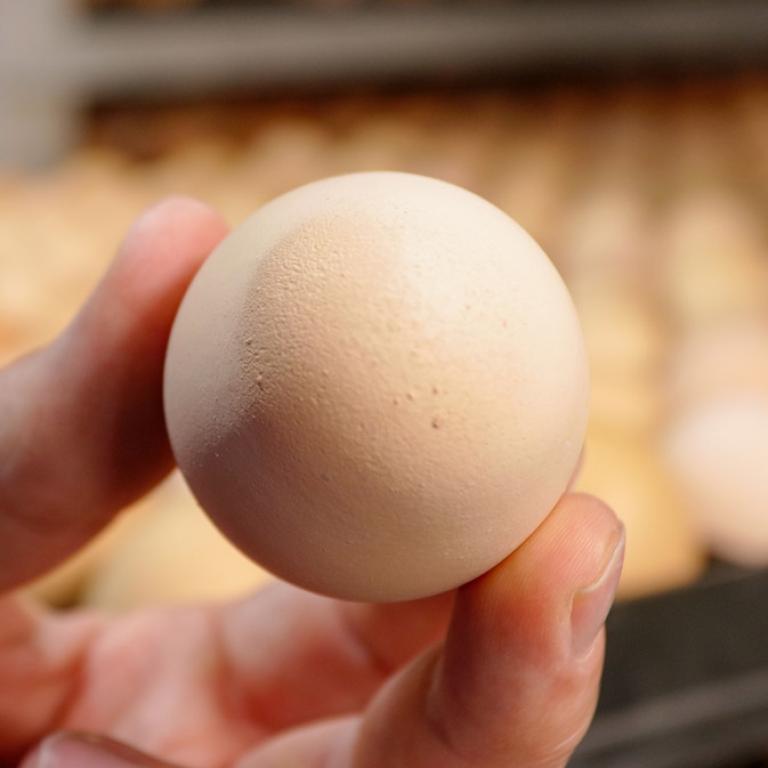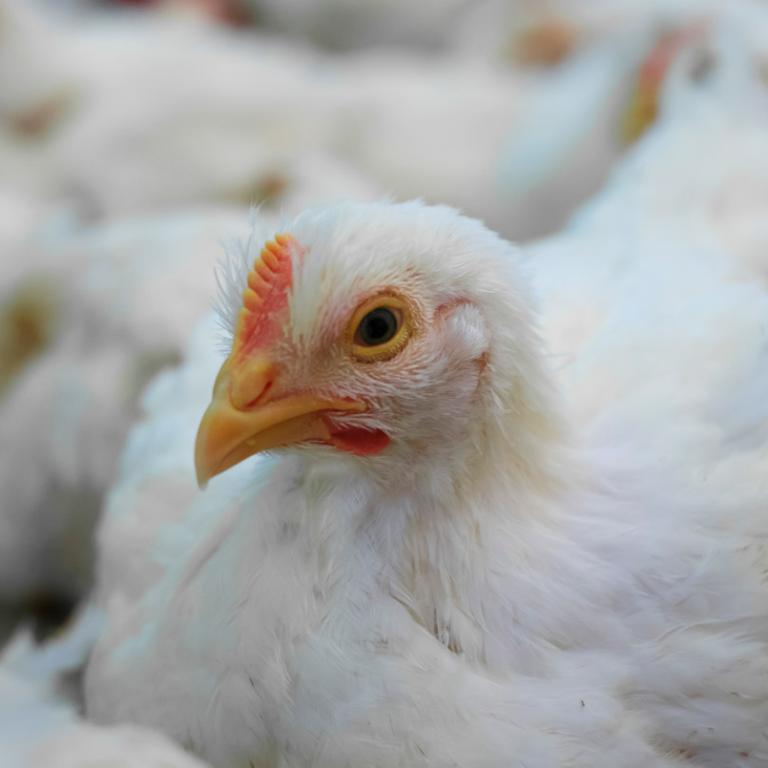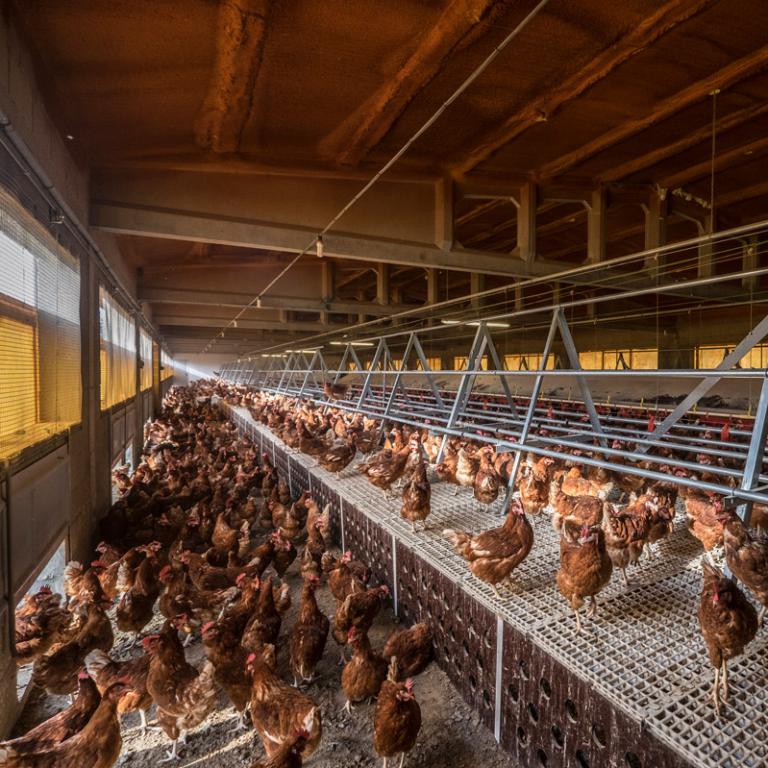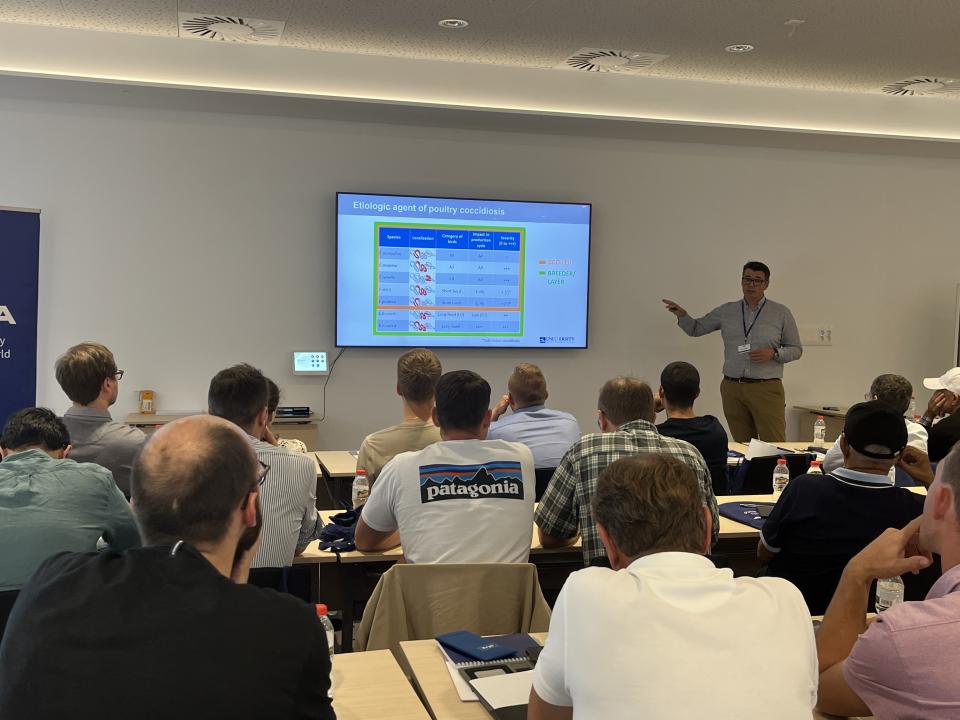Did you know that historically, gut health has been the main concern of poultry producers?
Humans have been aware of the importance of nutrition and gut health in poultry since they started to domesticate the birds when they first adopted a sedentary lifestyle.
Obviously, in those early times, they knew nothing of veterinary medicine, but they did know that there were certain foods and nutritional management that favoured a better productive performance by the birds and that this was closely related to a better utilisation of these foods.

Feeding a hen in a Roman mosaic.
In ancient times, various classical authors were already including dietary recommendations for poultry rearing in their treatises on agriculture and livestock farming.
Of particular note amongst these treatises is Rerum rusticarum, by the Roman Marco Terencio Varron (37 B.C).
Gut health in poultry veterinary practice
The intensification of poultry production in more recent centuries has brought with it spectacular advances in veterinary medicine, with digestive disorders being one of the foremost concerns of poultry veterinarians.

WPSA Stand at its London congress in 1930.
For example, at the Fourth WPSA Congress and World Poultry Exhibition held in 1930 in London, over half of the papers presented in the rearing and diseases sections were dedicated to nutrition and digestive disorders.
The effect of the reduction of the use of antibiotics on poultry gut health
There is a wide variety of infectious agents that can cause digestive disorders in poultry.
These can be viruses (parvovirus, enterovirus, rotavirus), bacteria (Clostridium spp., Salmonella spp., E. coli, Pasteurella multocida, Brachyspira spp., etc.) or parasites (Eimeria spp., Histomonas meleagridis, Cryptosporidium spp., Capillaria spp., Ascaridia galli…).
However, when problems of gut health are seen, they are generally not caused by a single agent, but by multifactorial processes, with the substantial involvement of other nutritional, genetic or management factors or toxic agents.
In this respect, during the last 15 years, an increase has been noted in digestive disorders in poultry, which are closely linked to the trends and policies aimed at reducing the use of antibiotics (especially growth promotors) and other drugs that traditionally have been used to keep the proliferation of certain micro-organisms commonly found in intestinal problems in birds.



